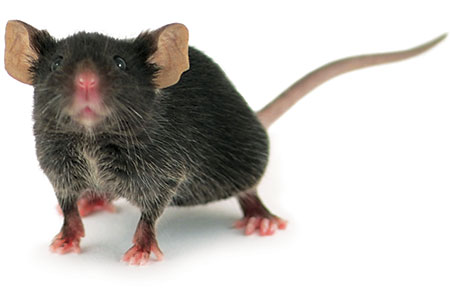Minimizing Investment and Mitigating Risk: How to Efficiently (and Effectively) Pursue Custom Model Generation
Generating a genetically engineered mouse model often requires a significant investment of both time and resources. In addition, certain risks related to the biology of the model may be unavoidable. These factors can combine to create a difficult situation, in which resources must be committed to initiate the work but the utility of the model remains in question (and cannot be assessed for quite some time).
The ability to deploy CRISPR-Cas9 technology directly in an embryo has reduced the timeline for generating many different model types, often helping researchers avoid this situation or reduce their investment. However, its use is not appropriate for all model types and it is best viewed as a complement to more well-established methods (e.g., gene targeting in embryonic stem cells).
This seminar will focus on how best to de-risk a custom model generation project. It will not only address technical risks associated with the process of model generation itself, but also biological risks, associated with the intended use of the model or goals for its function. Understanding this content will reinforce the value of a customized approach, and help ensure the success of your next project.
Scientific Program Manager from Taconic's Custom Model Generation Solutions (CMGS) and Colony Management Solutions (CMS) groups will also be available for consultation and questions, both before and after the seminar.
Attend this event to:
- 1.Understand basic timelines and risks associated with different model generation methods
- 2.Learn how to help ensure, as well as prospectively assess, the proper function of a new model
- 3.Explore how best to mitigate risk when planning for custom model generation
Event Schedule
- 11:00 - 12:00 | Open Consultation
- 12:00 - 12:15 | Lunch Provided to On-Site Attendees
- 12:15 - 1:00 | Seminar
- 1:00 - 2:00 | Open Consultation
Event Location
Register Here
About The Presenter
Patrick Gordon, PhD
Scientific Program Manager | Custom Model Generation Solutions
Patrick has 14+ years of experience with genetically engineered mouse models. Apart from his own training and research, this has included the design and oversight of large and complex colony management programs, as well as the design, generation, and molecular validation of new models. He also has deep expertise in the use of Cre/loxP systems for conditional gene expression. Broadly trained in neuroscience, genetics, and developmental biology, Patrick obtained his PhD in neuroscience from the University of Utah.

2023 Pricing Guide

